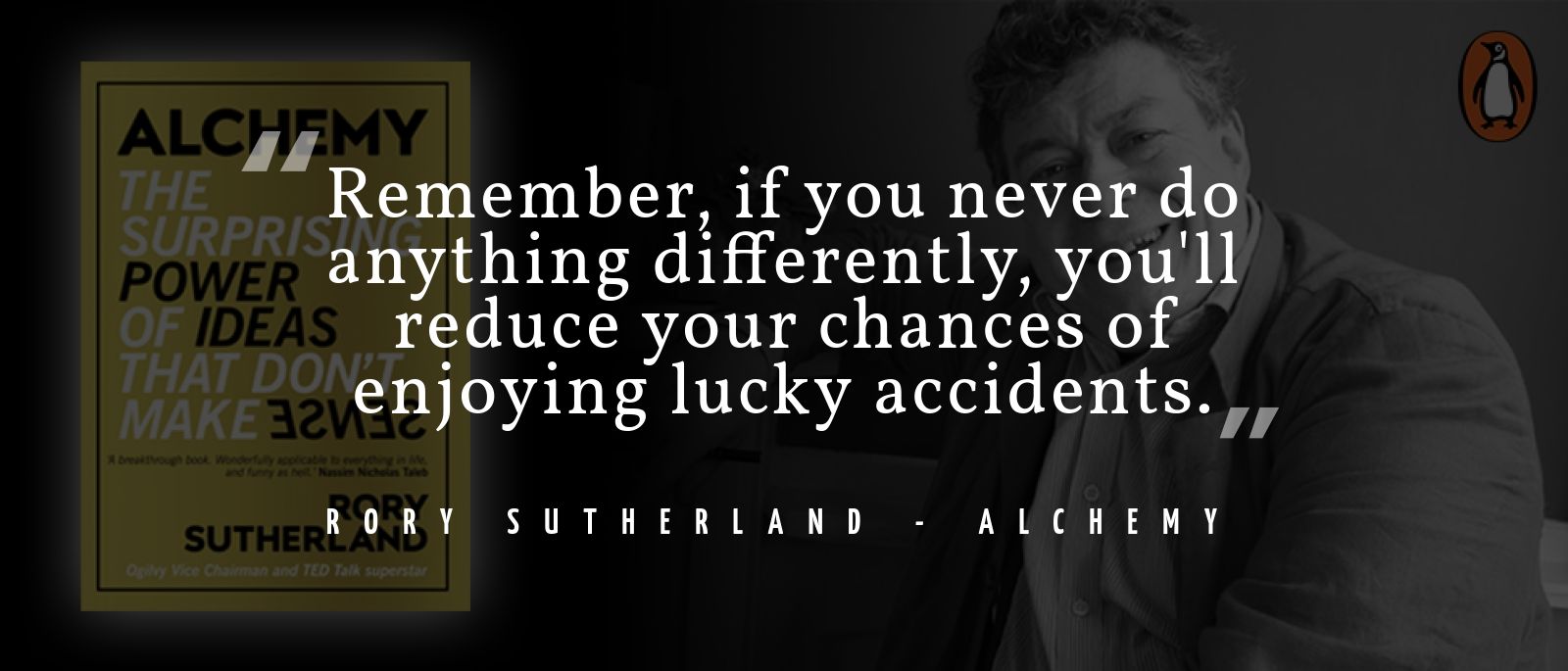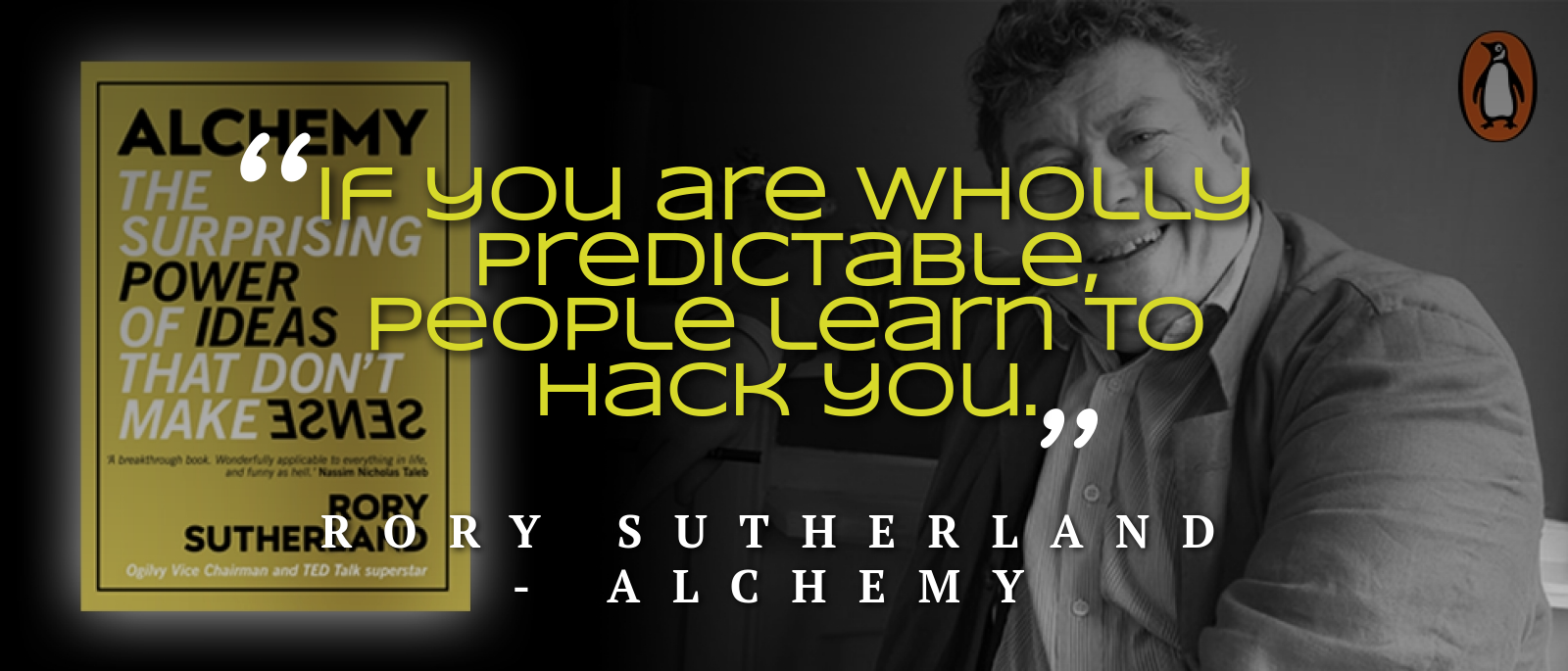Alchemy, by Rory Sutherland
( My reviews are strictly aimed at helping you decide whether you should read something, rather than assuming your meaning of “good” or “bad” is anything like mine. )
As per my last 'weeknotes' I finished reading Rory Sutherland’s “Alchemy” recently. The overall point of the work, for me, is that economics and marketing ( in general, so with exceptions ) have failed to understand human nature and desire, and therefore their models are incorrect. These points are well made, well illustrated, well supported; I do like Sutherland’s use of “psycho-logical” to describe the approach he advocates for. The only place where it gets a bit wobbly in places is where he argues that free markets are good for most effectively indicating what people want - which is fair - but those neo-liberal capitalists have ruined it by being more profitable. But extrapolating the benefits of certain strategies within a market regardless of their overall effect is a conversation for another time.

Quotable
Overall the book is longer than it needs to be to make this point, but Sutherland’s manner is so interesting and chatty along the way I think the standard book format and length serves it well. By the end I felt like I had had an interesting “single serving” conversation with Rory somewhere, where he did almost all the talking, but I was glad that he did so. The book is a series of short chapters, so a great read for commuting or coffee breaks - this format also works when it highlights a particularly interesting idea, and you want to put it down and go read about that instead. Looking at my nascent Zettelkasten ( it’s a text file ) I modified or created several entries after reading this, from affordances to satisficing, from mutualism to “baptists and bootleggers”.
The subtitle of “The Magic of Original Thinking in a World of Mind-Numbing Conformity” is a bit much, don’t let it put you off, the attitude in the actual book seemed much friendlier, to me, than that subtitle implies. Similarly, while he writes for the Spectator - which I’m always made aware of through a left-leaning lens - he seems to avoid that publication’s general “weren’t things much better before young people stopped knowing their place” approach. Also I think I liked the book because it supported one of my core beliefs, that faced with something as well established and pervasive as human nature, it’s a much better idea to adapt to it than to fight it; and that that approach is more fruitful and interesting than arguing that everyone should just be different to how they’ve always been. For example Sutherland argues this is a significant failure in environmentalist movements.
If you’re interested in problem solving, or why so much rational thinking doesn’t seem to improve the world, this is recommended. It’s very quotable too.

